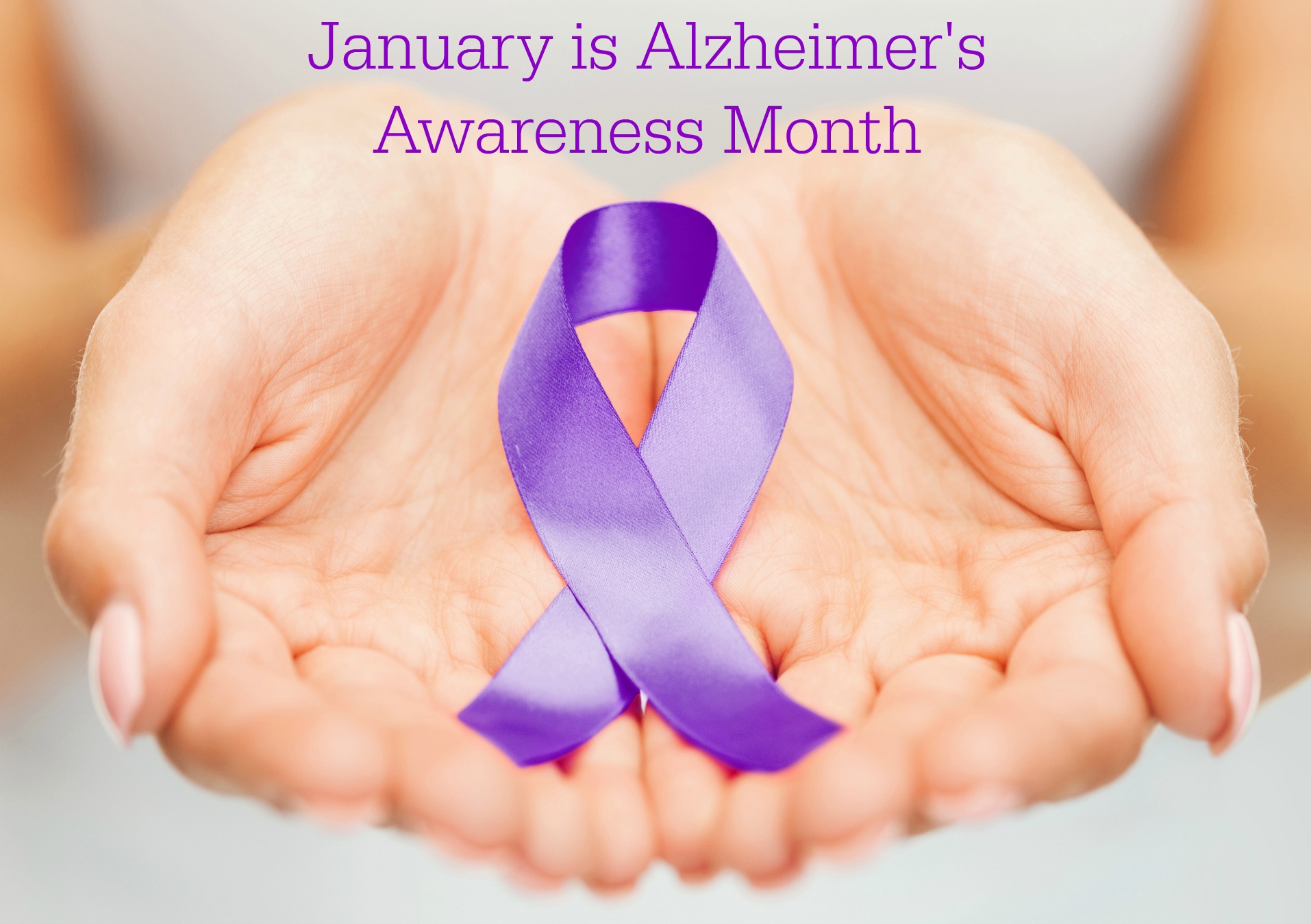Memory recall is a daily activity that many of us take for granted. Although you may experience memory fog, you know that it is temporary. For individuals diagnosed with degenerative memory loss due to dementia or Alzheimer’s Disease, memory loss is permanent. January is Alzheimer’s Awareness Month in Canada.
Tweetable: The brain weighs 2% of your body’s weight, but uses 20% of your body’s resources. ![]()
I’ve become very interested in Alzheimer’s from its stages to intervention to caregiver support. Why? I carry several genes for Alzheimer’s and I plan to do all that I can to avoid any gene expression for Alzheimer’s. My maternal grandma had Alzheimer’s, but back then, we certainly didn’t label it. Recently, my mom was diagnosed.
For the last couple of months, I’ve been raising an “Alzheimer’s Assistant Service Dog.” Okay, he isn’t a service dog yet. He’s in training and will be heading to Dog Wish in California to begin six months of intense and specific training to become a service dog for my mom. Cecil is a special dog and he’ll assist my mom by becoming a psychological anchor, a companion, a memory reminder and guide for daily tasks.
Most of us aren’t aware whether we carry genes for Alzheimer’s, dementia or other neurological disorders. That’s okay. You can start by choosing health over disease. Meaning, eat, exercise and choose health-giving lifestyle choices that support a healthy body.
Tweetable: Worldwide, a new case of dementia is diagnosed every 4 seconds. ![]()
Since it is Alzheimer’s Awareness Month, I decided to suggest 5 brain boosting supports.
5 Brain Boosting Foods
- Eat healthy fats — if the nervous system [NS] or brain doesn’t get what it needs, your whole body suffers. Healthy fats like nuts, seeds, coconut oil and such offer omega-3 fatty acids that aid in reducing inflammation, provide building blocks for your NS’s protective myelin sheath, and are components of your cells’ membranes and hormones.
- Consume vitamin-B-rich foods — B vitamins are important for the normal functioning of the nervous system. In fact a study done in 2010 revealed that B vitamins may reduce brain shrinkage by up to 90%! [1] The richest natural source containing the greatest number of B vitamins is nutritional yeast. The germ and bran of cereal grains are good sources too, as are beans, peas, and nuts. Liver from grass-fed sources is an excellent source of B complex vitamins. Leafy green vegetables may also supply small amounts of B vitamins. Because B vitamins are water soluble, you’ll need to include them daily, if not multiple times each day.
- Choose anti-inflammatory and antioxidant foods — simply put, you don’t want unnecessary inflammation or oxidative stress from free radical damage. Inflammation is your body’s way of telling you it is “hurt.” Think of a hangnail that gets red, swollen, sore, and warm/hot. That’s what goes on inside your body too. Anti-inflammatory foods include the vitamins A, C and E, and the mineral zinc. [ACEZn] Antioxidant-rich foods include those same vitamins, but the mineral is selenium instead of zinc. [ACESe] Antioxidants protect cells from free radical damage. Subsequently, eating foods rich in antioxidants is an excellent way to improve cognitive health and slow brain aging. Since anti-inflammatory and antioxidants are similar, there sources are similar. Think two for one — one food provides two brain boosting nutrients. Which foods? Foods like dark green veggies, pumpkin, sweet potato, butternut squash, citrus, sunflower seeds and/or butter, pumpkin seeds and/or butter, Brazil nuts. By eating lots of colourful fruits and vegetables, you can’t go wrong.
- Look to include choline — Choline increases the neurotransmitter acetylcholine in your brain and nervous system. Choline on its own effectively improves short- and long-term memory.[2] Unfortunately, like most B vitamins, choline is water soluble and doesn’t stay in the system for long. It is found in abundance in egg yolks, beef liver (like paté or liver & onions), wheat germ, beef, nonGMO soy foods, Brussels sprouts, cod, salmon, broccoli, peanut butter and milk chocolate.
- Add some vitamin E — particularly add alpha and gamma tocopherol, protective antioxidants in brain disorders like Alzheimer’s Disease. Some research suggests that vitamin E can delay the progression of Alzheimer’s Disease simply by reducing free radical damage. [3] Consuming foods rich in vitamin E include almonds, green leafy vegetables, sunflower oil, hazelnuts, and whole-grain flour. Personally, I buy tocopherol powder from The Light Cellar and add it to my smoothies.
It is not too late to decide to make 2016 your year of healthy choices. Watt Works Nutrition launches its “New You” program in February. Why February? Well, because you’ve already tried that fad diet and it didn’t work. But you still want to make a change — to fit into those skinny jeans or to hike with your partner or to dance at your daughter’s wedding — whatever your reason, we can cheer and coach you to make that happen. Ditch those crazy diets and learn how to feel fabulous with real food.
Call Brenda or email for your no-obligation Discovery Chat.
Resources
[1] A. David Smith et al, “Homocysteine-Lowering by B Vitamins Slows the Rate of Accelerated Brain Atrophy in Mild Cognitive Impairment: A Randomized Controlled Trial,” published September 2010, http://journals.plos.org/plosone/article?id=10.1371/journal.pone.0012244.
[2] Amy Norton, “Choline-rich diet tied to sharper memory,” Reuters-Health, Nov 23, 2011, http://www.reuters.com/article/us-choline-memory-idUSTRE7AM2RE20111123.
[3] Denise Mann, “Nourishing Your Noggin,” WebMD, October 1, 2004, www.webmd.com/diet/nourishing-your-noggin.
